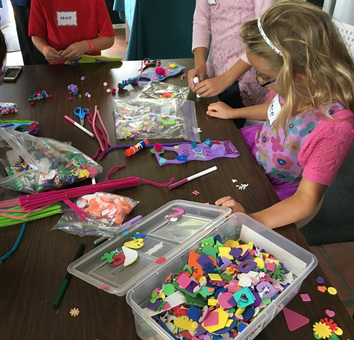
Emotional boundaries are just as important. It is important for children to understand that they are free to set some boundaries themselves. For instance, if the kids at school want you to do something that you don't feel good about just say no. Children can learn to listen to their own small voice inside and follow it and not the crowd. If they learn this early on, they will grow up to be strong and independent adults.
I recently played a game with my young students about healthy boundaries. We sat in a circle and went around the circle as each child gave an example of a boundary that had been set for them and then one that they had set themselves . They told how the boundaries made them feel and why they thought the boundaries were good. There were physical boundaries like "don't play with matches; matches can start fires and you can get hurt" and emotional boundaries like "say no to someone who wants you to be mean to somebody who doesn't fit in". We then had a small discussion about these boundaries with all the children joining in. Many said that they wouldn't like the bullying scenario because they wouldn't like it if it happened to them. That's the beginning of empathy for others.
Because I am an artist and a very visual person, I always like to get the children to create something to take home. We made "boundary markers" as a reminder that boundaries are important in life. Each child used a foam door knocker to write down on one side reminders of good boundaries that they had in their lives and others that they might set up. They then decorated the front side to make them "happy boundaries" and took them home afterwards.
 RSS Feed
RSS Feed